In an exciting archaeological breakthrough, two enormous Roman statue heads have been uncovered at a cricket club in Carlisle, located in northern England. These remarkable artifacts, believed to originate from the early 3rd century, have intrigued both scholars and history buffs.
A Lucky Find on Day Two
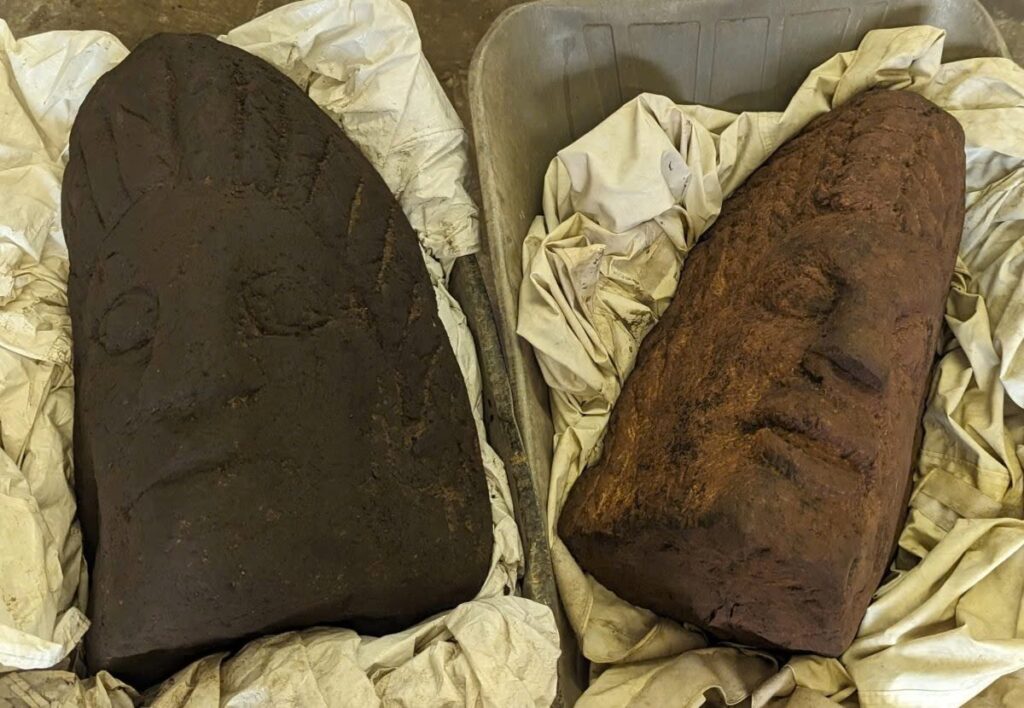
The excavation, which began on Monday, May 22, made this astonishing discovery on only the second day of digging. One of the sculpted heads is thought to possibly depict Fortuna, the Roman goddess of luck—a fitting representation for such a serendipitous find.
Possible Imperial Figures: Septimius Severus and Julia Domna?
Archaeologists propose that the two heads, one male and one female, may represent Roman Emperor Septimius Severus and his wife, Julia Domna. The female figure’s unique hairstyle, characterized by thick, wavy braids, corresponds with the well-known imperial style of Julia Domna.
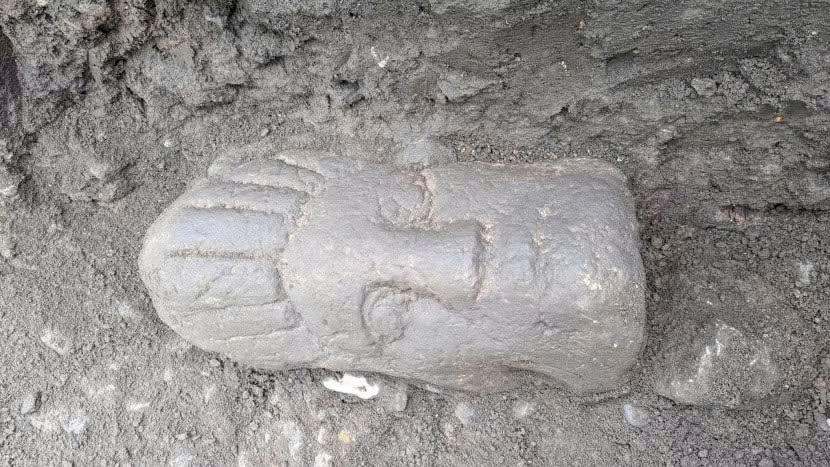
Impressive Size and Importance
These sandstone masterpieces measure an impressive two feet in height—three times larger than life. Experts estimate that the complete statues would have reached heights between 12 and 15 feet based on the proportions of the heads. As the first sculptures uncovered at this location, they mark a significant advancement in our understanding of Carlisle’s Roman history.
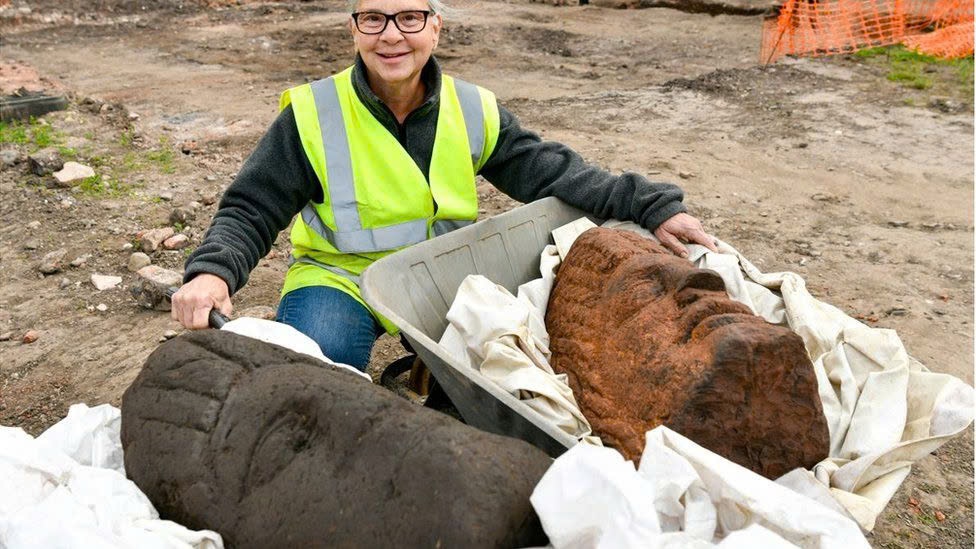
An Expanding Collection of Roman Artifacts
The recently discovered heads add to a growing assortment of Roman-era treasures from the site. Previous excavations have uncovered tiles and gemstones, suggesting a potential link to Emperor Septimius Severus in this region.
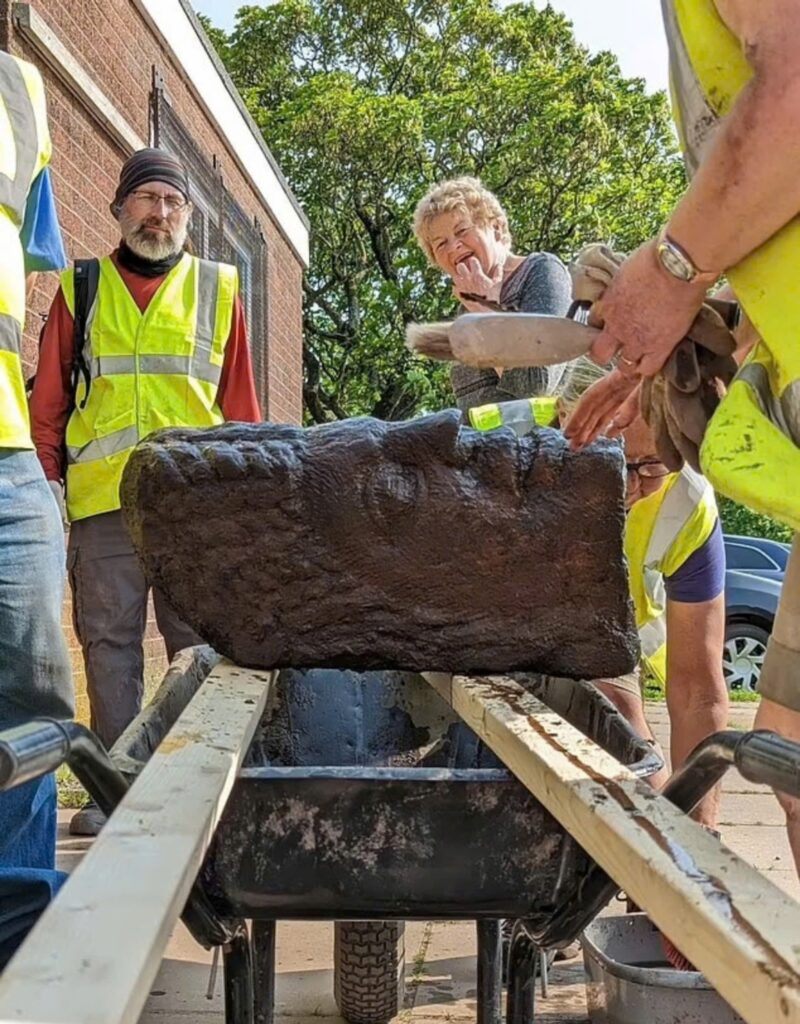
The Enigma of Their Location
Interestingly, the heads were found placed side by side at the edge of a cobbled Roman road, indicating they may have been intentionally positioned there. Archaeologists theorize that these might be “spolia”—repurposed building materials discarded during the looting of a nearby bathhouse complex.
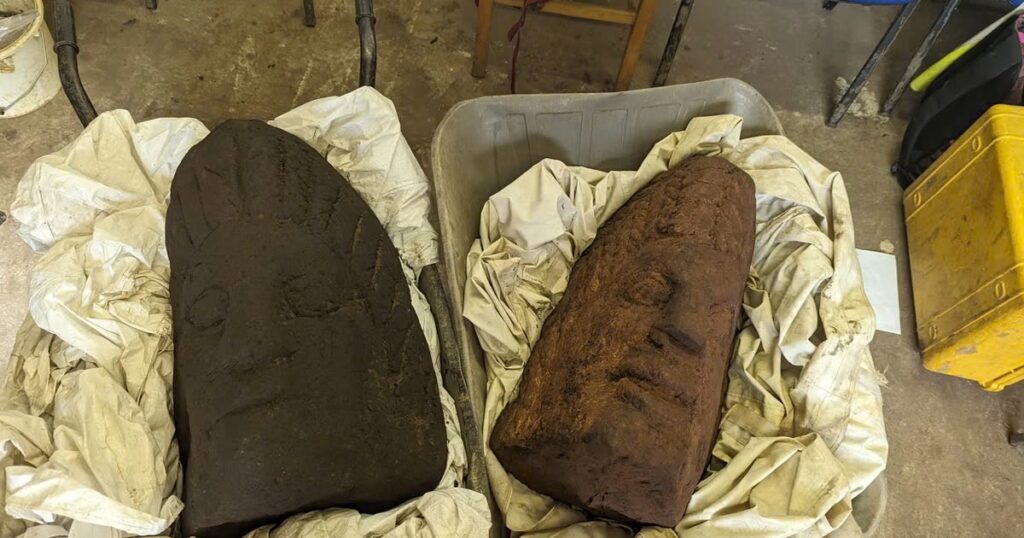
Community Contribution and Local Enthusiasm
The groundbreaking discovery was made by volunteers Carolyn Veit and Ruth Pearce, highlighting the vital role that community members play in archaeological endeavors. Cumberland Council Councillor Anne Quilter expressed her excitement about the find, underscoring its importance in enhancing Carlisle’s rich Roman heritage.
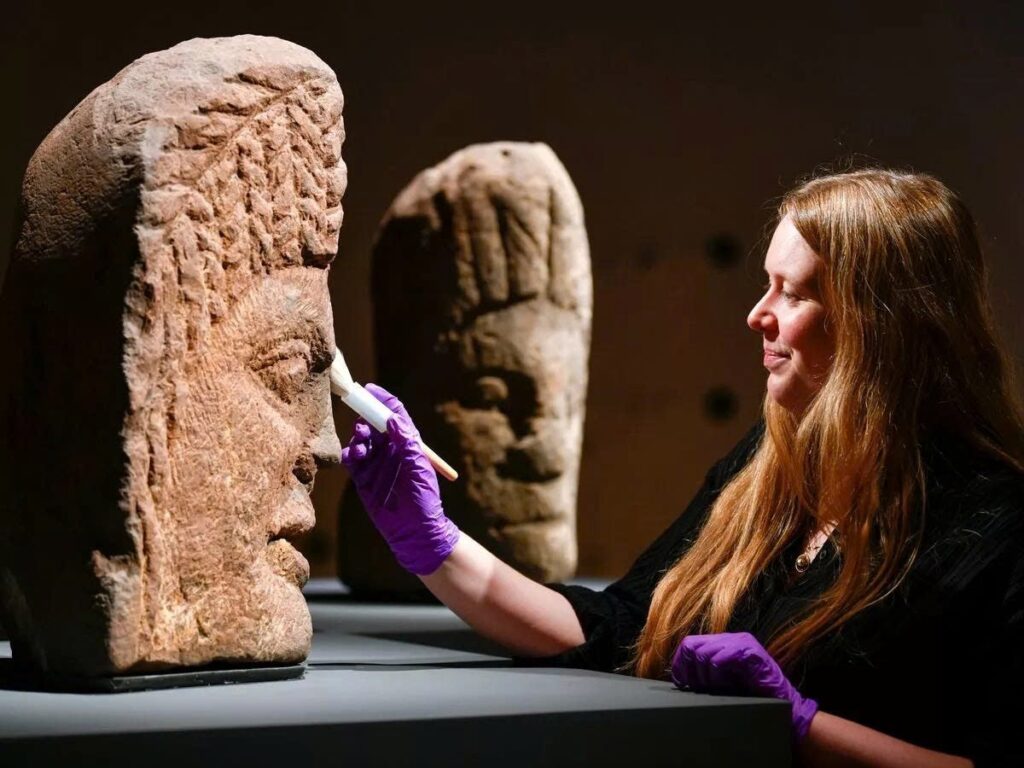
The Excavation Continues: What Other Secrets Might Be Uncovered?
With the excavation set to proceed until June 24, and support from local firm R H Irving Construction expanding the dig site, anticipation grows regarding what other historical treasures might still be uncovered. As more volunteers join the initiative, Carlisle stands ready for further exciting discoveries that promise to shed light on its ancient past.

